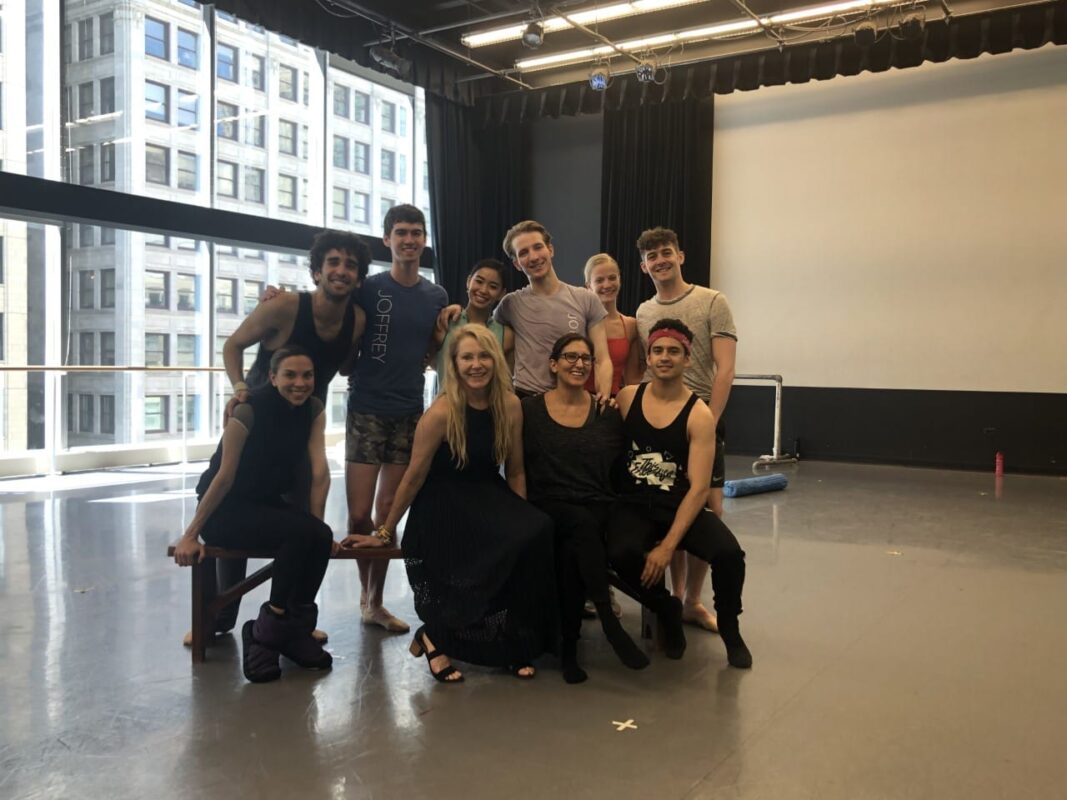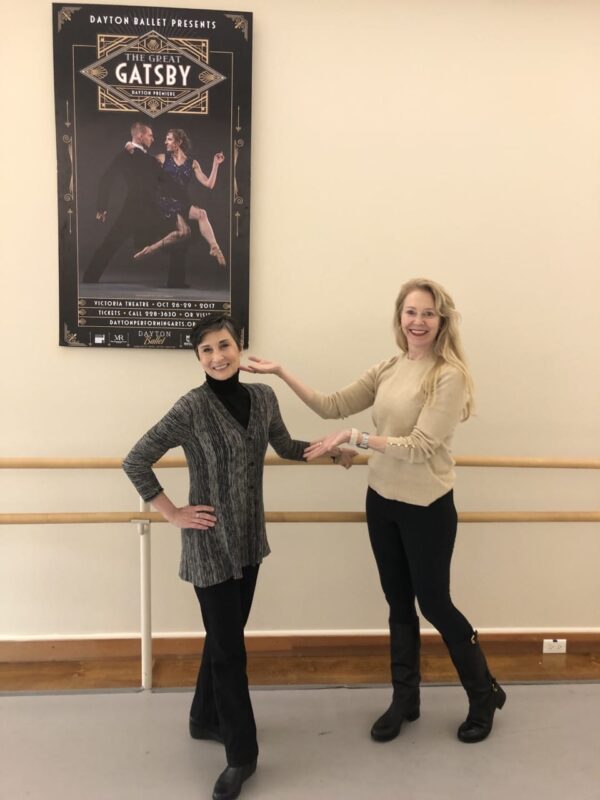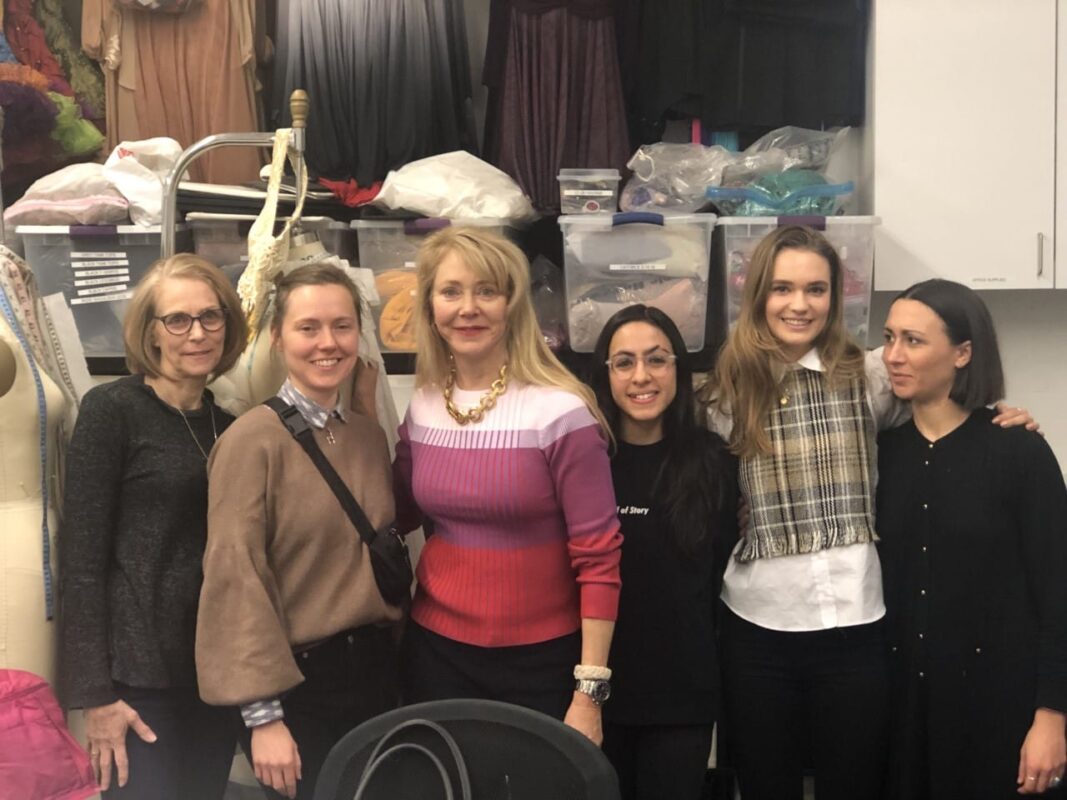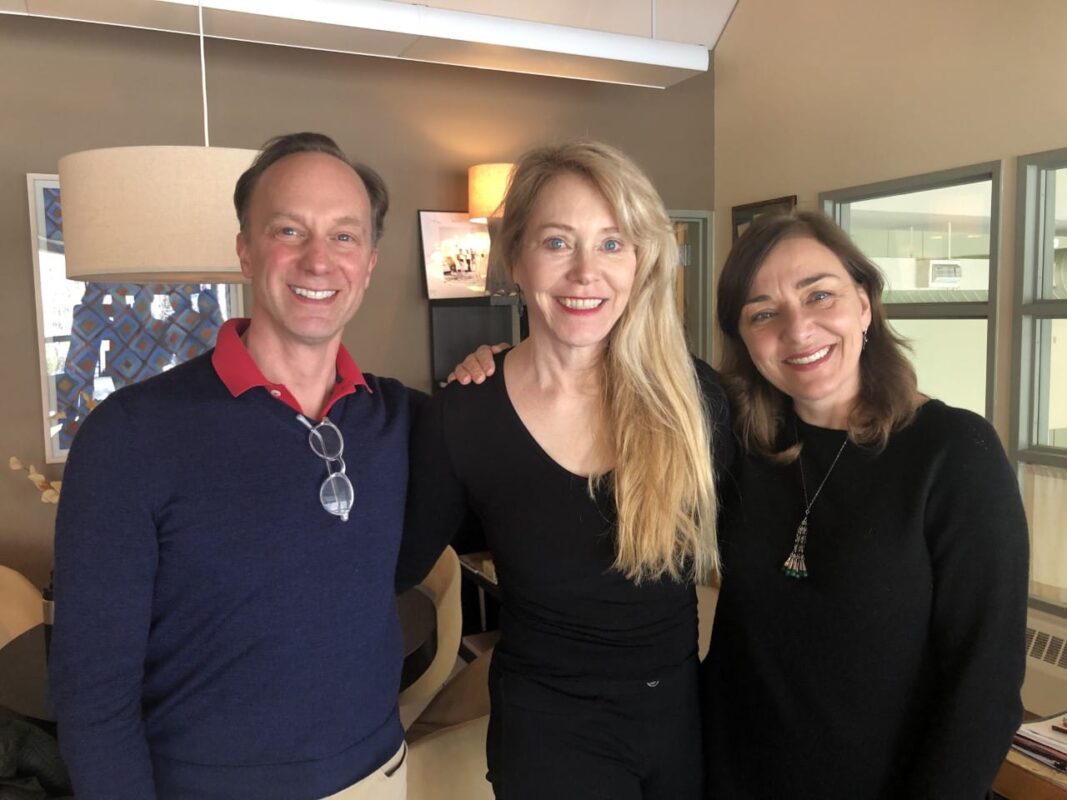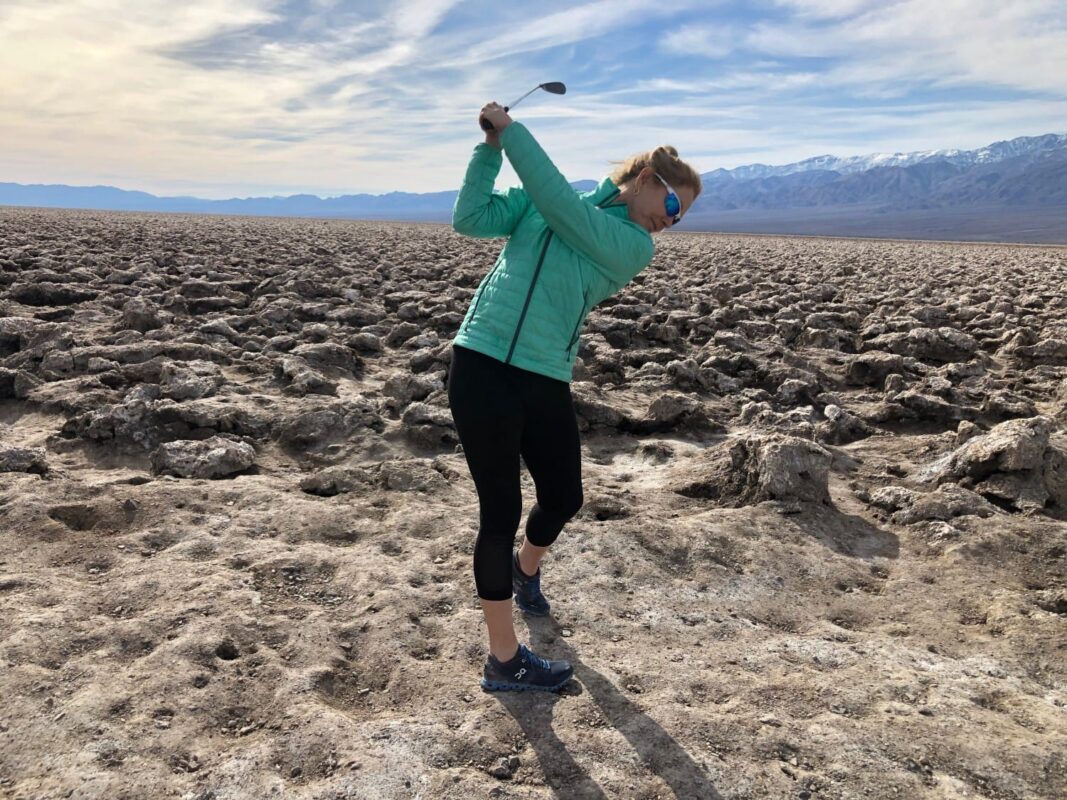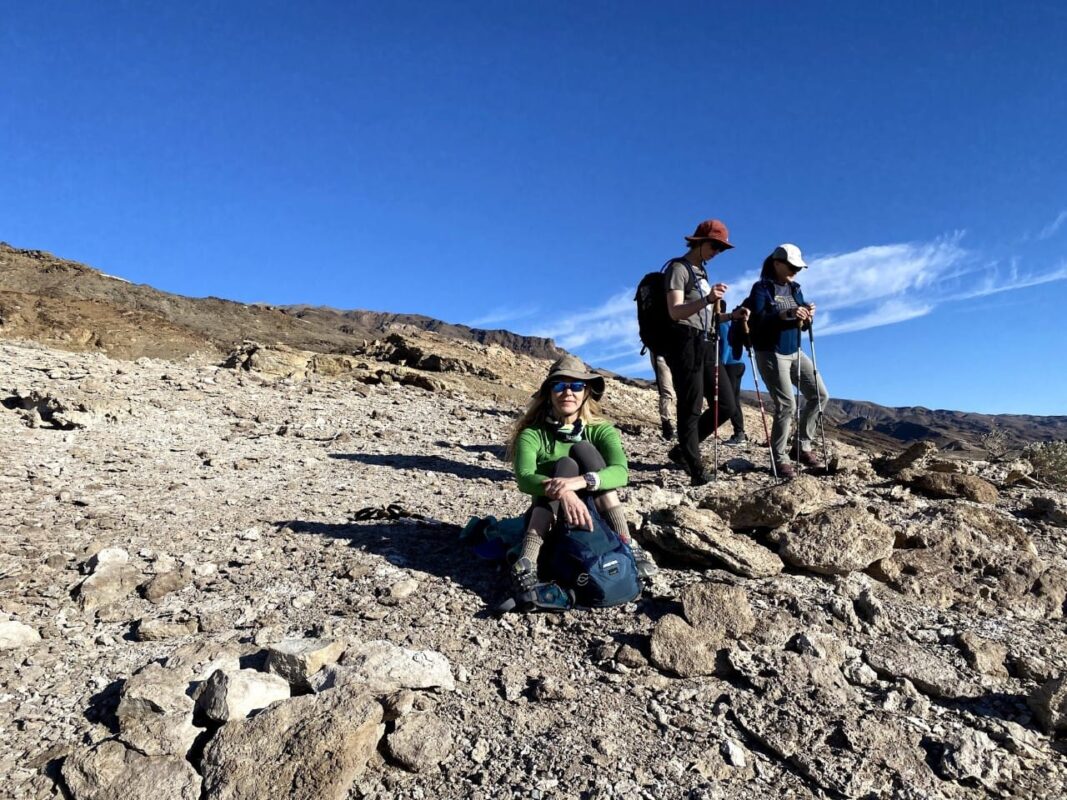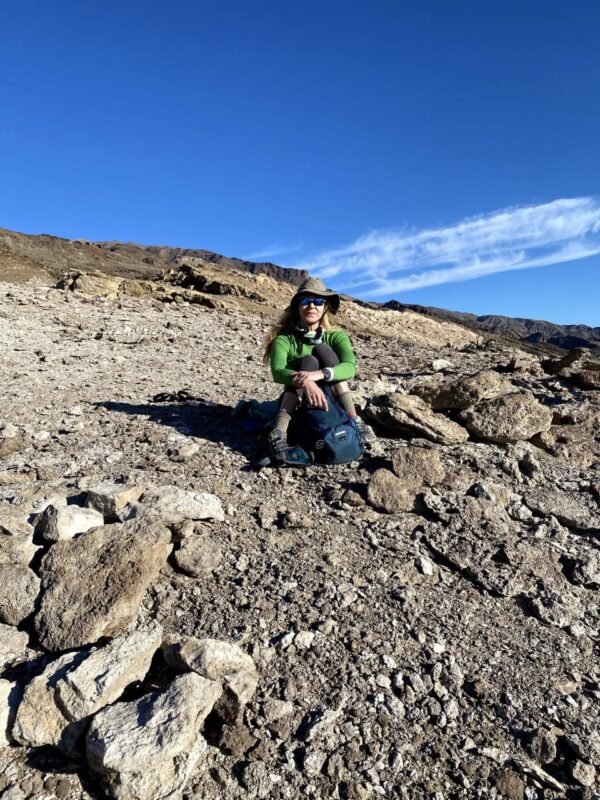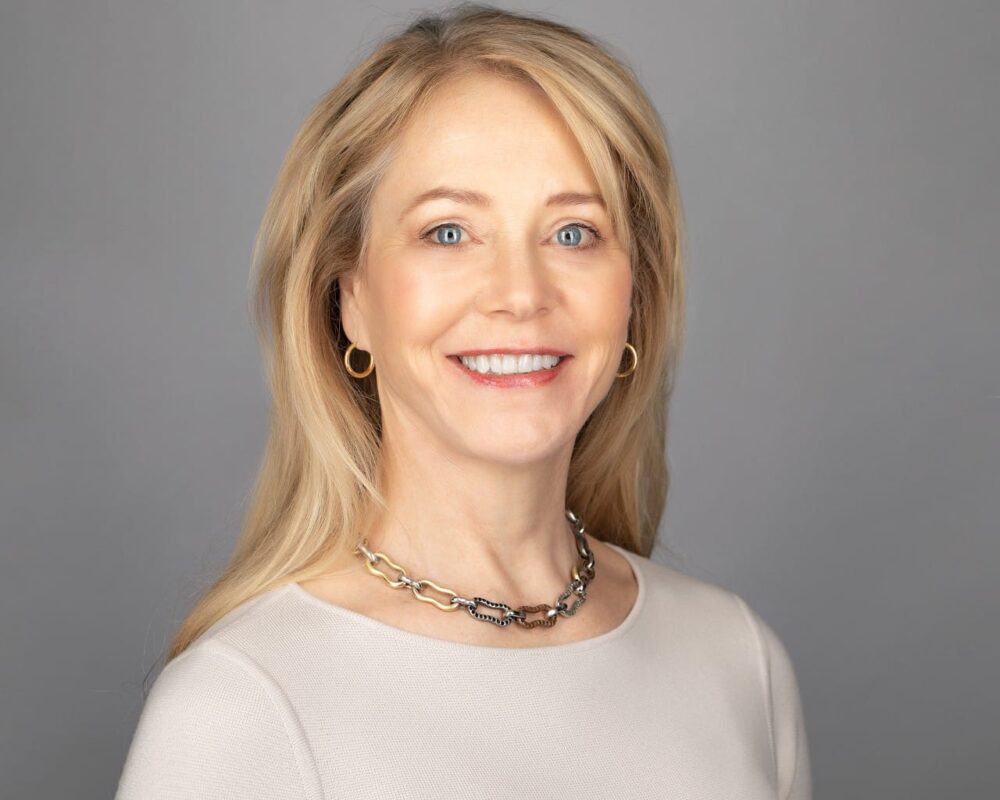Meet Elizabeth “Liza” Yntema, Founder and President of Dance Data Project®. A global resource for the study and analysis of major national and international dance companies, venues, and choreographic awards. She is member of the Board of Trustees for WTTW/WFMT, the Advisory Board of the Trust for Public Land in Illinois and the Board of Directors of the Chicago Shakespeare Theater.
Who is Elizabeth Yntema? Define yourself
Introvert/extrovert, a woman with huge amounts of energy but a shameless napper. Poetic and pragmatic, stubbornly moderate in politics and life. Recent science tells us that we are literally different people by age 60 than the person we were at early adulthood.The joy of not being one of those vaunted "old souls" is that this present moment, this life, is teaching me all the time. What brings me the greatest pleasure, is being of use, and making unexpected connections.
I am terrible at math, but have become fascinated by quantum mechanics and string theory, now dipping into science as well as art journals, silencing the voice in my head that tells me I am not worthy, not smart enough, but choosing to gingerly explore the cosmos anyway.
"The only way to accomplish anything in life is to “be selfish” even if it’s working on behalf of others. Women daily face a barrage of criticism or backlash for stepping past or out of societally defined roles, at almost any age"
How were you as a kid?
Tiny, uncertain, solitary, with a surfeit of energy. My mother, who worked as a full time professional (unusual for the time), put me in ballet to wear me out and because it was socially acceptable for a young lady (no Title IX back then). Testing revealed ADD, physical activity has always calmed me down and allowed focus and reflection. I loved the discipline, the slow progression, the community of dancers.
Of course, like so many wanna-be ballerinas: I starved myself to dance, and my family grows late in life. So, in 8-9thth grade for example, I was 4’11 and 89 lbs. Everyone else was developing, and I had buck teeth and a bowl cut. I leave it to the imagination how that went. Let’s just say things didn’t change much in high school. However, Winsor School in Boston saved me. All girls, proudly fiercely intellectual, it gave me wonderful academic training and a community of incredibly smart women. I am proud to serve on their Corporation.
You were graduated from the University of Michigan Law School, where you were awarded the annual prize for Outstanding Contribution to Social Justice. Why did you choose that course of study?
To be honest, I went to law school for two reasons: First of all, I had no idea what I wanted to do with the rest of my life. Enrolling in grad school seemed to guarantee respectability and allowed me to delay for 3 more years figuring out what “I want to be when I grew up” (still haven’t worked that one out) Secondly, I came from a highly academic family, extremely distinguished, opinionated. Our dinner table was not about catching up, it was full on, constant “point counter point.” The positive was the discussions were high level and never ever about extraneous surface chitchat. Even as a small child, I was allowed to engage with the adults. The negative side was that even at 9 or 10, offering an opinion meant you were fair game: without proof for a statement, you got shredded. I wanted to understand and be able to use the “language of power.”
I have been “making trouble” since the age of 15. Law school presented an opportunity for advocacy, but as I look back, I wish there had been a focus less on case law, or even trial clinic, and more on dispute resolution. While injustice has always made me absolutely nuts, I also don’t like tearing things down and apart. It’s much harder, but I would prefer to invest in solutions. Once I got to law school, while I was intellectually intrigued by some of it, I pretty much knew after the first year that I didn’t want to practice. But, if you do well, and I was then at the third highest ranked law school in the US, one gets sucked into the prestige, are recruited and end up in a cubicle. My original intention, before I met my husband, was to go back to the DC area and work in an agency or for a Congressional committee, which I think I would have very much enjoyed. Instead I followed my husband to Chicago, knowing no one. My volunteerism began as a way to engage, make friends.
"Never ever listen when someone says “No” --You have to get very comfortable with naysayers, with folks telling you it cannot be done, if one thing doesn’t work, well, take a breath, take a break, but keep going"
You served as an attorney and lobbyist. After staffing the Tech Review Staff of Speaker Michael Madigan, you enjoyed a stint in public relations/issues management and served as the Director of Governmental Affairs for the Chicago Area Chamber of Commerce, how did you jump from to that point to found your company Dance Data Project®?
Mike Madigan is considered by many to be the single most powerful state wide politician in the US. While mayors and governors have come and gone, he has endured. While I don’t agree with most of his policies, and he is commonly referred to as on a level with Voldemort (He Who Shall Not Be Named), I had an incredible experience working for his Tech Review Unit. I literally loved every second of the experience, and he was a great boss, totally fair and zero issues with women. He just wanted the work done, and I delivered. Getting an insider’s view of “the sausage being made” was invaluable. He actually let me draft legislation, and this is back in 1985, for “parental” not maternity leave. Dealing with an avalanche of bills coming in over the transom, with about 30 seconds to read, decode/flag, and determine what to do, was superb training, as was briefing legislators who had no interest or background on a bill, bringing them up to speed as quickly as possible by laying out the salient facts and where their interests lay.
I wasn’t happy toiling away for a big firm, so jumped off the law firm path before many of my contemporaries then worked for what is now the Chicagoland Chamber of Commerce as well as Edelman Public Relations. After children, I moonlighted at a not for profit think tank. Great experience, loved most of my colleagues, got to decide in great measure where to focus priorities, and learned more about interacting with the media and doing in depth governmental budget analysis.
Dance Data Project®, promotes equity in all aspects of classical ballet by providing a metrics-based analysis through our database while showcasing women led companies, festivals, competitions, venues, special programs, and initiatives. Where this idea came from, what have the results been?
Bottom Line: I steal most of my good ideas. Back to Madigan, and my boss on the
Tech Review Unit, who said that I was faster than anyone they had seen at synthesizing a stack of random material and facts. Not brilliant at all, but great at sifting through masses of paper and identifying issues/an innovative lens or approach. That is how I started DDP, saw a problem, investigated, and analyzed potential solutions/avenues of attack to move the needle on a global, multi-billion-dollar industry/art form. After my children got a bit older, I started to re-engage with volunteerism. I got bored quickly with doing the typical “women’s board” or “mommy” craft/stuff envelope tasks.
I had been donating fairly significant amounts to support ballet productions for years. I am good at throwing parties, making them fun and raising a lot of money. After I chaired The Joffrey Ballet gala in 2015, I was asked to join the Board. I immediately started asking “where are all the women?” and wasn’t getting sensible answers. Being my parent’s daughter, I don’t give up, so while continuing to “bug” leadership, I also sat down at my kitchen table and started researching. Like so many not for profits, Dance Data Project® has grown organically: I made my first real hire in 2015, and Susan West is with us still, having moved on to a successful career as a consultant. Originally simply a glorified but expanding spreadsheet, we now serve as a resource in a number of areas: multiple studies on gender leadership and pay gaps at ballet companies, and an in depth look at venues.
We also have pivoted to provide resources for funding for women during Covid-19, as well as maintaining a growing list of close to 400 female leaders past and present; a master list of female set, costume and lighting designers, as well as original composers for classically based dance. When COVID-19 shut down live performances in March, our team pivoted, assessing the poor quality of most companies’ and venues social media and website offerings. We found an opportunity to insert fresh, innovative programming featuring women’s voices. The result? Global Conversations, which has now expanded to at least 3 rounds of Instagram/YouTube, short and sassy interviews with female choreographers.
"Put the time into creating protocols and procedures, then follow them. Your bookkeeper is your best friend"
You are a very busy woman, still you have time to help, you are a member of the Board of Trustees for WTTW/WFMT, the Advisory Board of the Trust for Public Land in Illinois and the Board of Directors of the Chicago Shakespeare Theatre and you were past member of numerous organizations in the Chicagoland area, also you spent a year honing her skills as part of “the next generation of strategic philanthropists.” TPW is a global network of over 450 selected philanthropists, from 22 countries. What does it drive you?
My kids are grown, thriving and gone. This is the best, most exciting part of my life. I have time, energy, abilities I have developed, and don’t have to answer to anyone. I am 61 heading to 62 and never been happier nor more productive. Being 60 plus is fascinating: I trust myself more to make the right decision. I feel as though I am both in a hurry to get things done, but much more relaxed, and capable of planning long term.
The only way to accomplish anything in life is to “be selfish” even if it’s working on behalf of others. Women daily face a barrage of criticism or backlash for stepping past or out of societally defined roles, at almost any age. As I get older, I am able to pretty much shut it out, move past it, and get on with the job at hand. That is hard earned, and believe me, I get a torrent of second guessers, critics behind my back, often from other women I don’t even know.
I have made it a core value and my mantra, not to belittle or deride members of my sex, right or left, conservative or very liberal, working or not. Women judge and shame each other into silence and inaction. I refuse to be a party to gossip, backbiting, or make another woman “less”. I now choose my friends and mentors very carefully.
I am so incredibly fortunate: I am delighted to work with a ton of smart, committed people, both staff and Board members. I have learned and continue to absorb so much from them every meeting. All the skills overlap and catalyze ideas for DDP.
You recently joined the Boston Ballet’s multi-year initiative Choreographer as a Lead Sponsor and actively support the Pacific Northwest Ballet’s choreographic initiative for female students, New Voices. You have achieved a lot, what´s the recipe for your success?
The success I have had is by supporting other women. These two initiatives, along with the American Ballet Theater’s Women’s Movement are well thought out, multiyear programs to bring female choreographers forward
What does a normal workday look like for you?
Hah, well during current pandemic times, things are a bit stranger than normal. But, I am never not working. One of DDP’s projects recently had me pulling multiple close to all-nighters – which I found much harder than when I was in my 20s/30s. I do take breaks to go for a walk, to work out, to read a book. My husband and I have started running away with our rescue dog to a 580-acre forest preserve. We both find we are transformed by just 90 minutes’ bird watching, listening to the bull frogs, looking at what new flowers have come up overnight.
Guilty pleasure: I don’t stint on sleep, ever, if I can help it. 9 hours, 6 hours, whatever it takes to make me feel rested. I have found that overall, more sleep translates not only into patience and emotional resilience, but calmer more reflective decision making. Sitting still doesn’t work well for me, so meditation has to be moving: whether it is rowing a double, hiking a trail, or my most frequent stress reliever these days: vacuuming and sweeping floors. I am Dutch and Scottish, so cleaning is therapy for me.
I am an idea omnivore. Our big challenge is to link issues around ballet to culture in general, to make this esoteric art form relatable and relevant. To figure out how forge that link. I read 4 newspapers cover to cover on the weekend and some foreign language newspapers, about 8 dance publications internationally, and blogs.
"Most of the women I know people think are perfect, have at least 2 nannies, an assistant, rotating cleaning crews, and don’t take a breath, ever, to consider if they are happy. If these “role models” don’t outright lie about it, they sin by omitting the reality, pretending they magically get it all done. It's destructive and dishonest"
What do you love most about your job in Dance Data Project? & what is the most difficult part?
I love feeling useful. Nothing feels better than when a dancer, choreographer, or company executive says that I have transformed what they think about the field, and that it is comforting “someone has my back.”
The most difficult aspect is being essentially alone. I do bounce ideas/strategies off of my wonderful patient friends and sometimes my team, but we are trying to do something in a new way, building a new philanthropic advocacy model. People tell me, “you are doing incredible things, keep going.” But, I also strongly feel the vibe of “Oh, just go away, you are older rich privileged lady, what do you know?” Or “Just sit down, shut up, and write a check, stop causing trouble.”
What is one strategy that has helped you grow in your business?
Never ever listen when someone says “No” --You have to get very comfortable with naysayers, with folks telling you it cannot be done, if one thing doesn’t work, well, take a breath, take a break, but keep going, just as long as you possibly can. Best example: Head of intellectual property at a major Chicago law firm told me point blank that Dance Data Project would never receive trademark status as a name, as it was “too descriptive.” He was wrong. He also lost our application, then retired, and a secretary found the letter confirming our trademark status, sitting in his office 6 months later. You may not be surprised to learn I refused to pay the bill, which included overpriced hours charged for giving me categorically wrong advice.
As an entrepreneur, what is the one thing you do over and over and recommend everyone else does?
I am going to take a liberty here and pick 2 things: 1. Know where every single penny is, which translates into: put the time into creating protocols and procedures, then follow them. Your bookkeeper is your best friend.
Number 2: get media trained. Best money I ever spent. Too many smart people think they can just “wing it” and they blow interviews, presentations, and face plant by speaking in platitudes. One of my best professors at UVa said, and I have never forgotten it (he would likely get fired today for hurting someone’s feelings): “If you have a brilliant idea, but you don’t know how to express it, consider that the idea wasn’t all that great in the first place.” I used to do this for a living, and still hired Anne Kavanaugh of MediaPros in Chicago, best in the business. She is brutal but brilliant. I took a 4-hour nap when were done. Still using what she taught me, every day.
What situation marked your life in a way that prompted you to be who you are today
There isn’t one time or thing. It’s an undercurrent, constant of being underestimated, taken for granted, expected to behave in a certain way. Like so many women, we aren’t allowed to express it, but I will go ahead and say it, as Aristotle got there first. Paraphrasing: “Anger, properly controlled, is a wonderful motivator.” Go ahead and get “good & mad” - just use it well.
What do you like to do in your spare time?
The hermit side: Run away from home into nature/quiet. I took 5 weeks to walk 300 miles of the Northern Route of the Camino De Santiago. And not in the Instagram posting, safe, friend group bubble: I did it almost completely alone. Just one foot in front of the other, no headphones, no distractions. I have climbed Kilimanjaro, hiked in Patagonia, Bhutan, and elsewhere. I also like open water swimming in Vermont, with the mist curling like smoke up off the water, and the loons hooting as the sun comes up.
The social side: I groove on watching people I adore make unexpected connections/friendships. We throw old fashioned, whoop-de-do parties, because we like entertaining.
Many authors say women can and must strive to have everything – a shining career, a blossoming family life and a perfectly balanced lifestyle all at once, others point out that– then women are placing unrealistic expectations on themselves if they believe they can have it all, you live in Winnetka with your husband Mark Ferguson and you have three grown children, so according to your experience, what do you think about these statements?
Nope, it’s not possible, rather a hugely destructive self-perpetuating myth that women impose on each other. The level of senseless, performative, out of control “lifestyle” promotion and hand wringing over meaningless tasks hobbles women with shame and guilt. By the way, Truth: Most of the women I know people think are perfect, have at least 2 nannies, an assistant, rotating cleaning crews, and don’t take a breath, ever, to consider if they are happy. If these “role models” don’t outright lie about it, they sin by omitting the reality, pretending they magically get it all done. Its destructive and dishonest.
As my forte is in facts/policy. I frankly resented the continuing assumption that since you are female/a mom, you should be signing up for whatever time suck/irrelevant gig. I do so wish that all these smart, competitive women would actually use their skills to have a real social impact instead of inventing needless projects and one upping each other. All experiences are good, however. This form of community engagement provided a great model of what I didn’t want to do.
Advice from the suburban trenches: Ignore social media, live in an ethical/ responsible bubble of the choices you make. Here is a radical idea: Don’t let your children or spouse tell you what you have to do to be a “good” wife or mother. Another one: once your children head to college, it is their life. Their happiness is not your responsibility.
What are your plans for the future?
Keep going, do more, be useful. Listen as much as I can. I have plans for philanthropic ideas/ projects stacked up like pre-pandemic peak time air traffic circling over O’Hare. I would also like to teach a class on effective philanthropy, there is so much passion, time and money wasted.
There is still the glass ceiling for women in the world: Fewer opportunities, jobs underpaid just for that fact of being a woman, etc. Have you experimented the glass ceiling? If yes, what are the biggest challenges you have faced and how have you overcome them?
Yes, absolutely. To some extent, at this point, I can set my own rules. Where invited and possible, I use my influence to support young women, by counseling them to be confident, weather crises, develop some swagger and armor and not to ever give their money or power to a man. I deploy my network to find them positions, to give referrals, to talk over job changes, how to negotiate a raise, or just have a cup of coffee and wait for what comes up. They are so smart, so courageous, kind and funny. Again, I am blessed.
What tips, can you give to young girls who want to become an entrepreneur like you?
They are likely smarter, more energetic, have better ideas and a big vision that I ever did. Please don’t doubt yourself. Allow yourself to fail, to make mistakes. I fail all the time, big/small and everything in between. I have been at the head of my class and the” goat” everyone laughed at, or the Lanterne Rouge.
An example of refusing to quit, to be shamed and crawl away: I failed a portion of my 2nd degree black belt test. You know what? I just refused to give in, kept coming back into the dojo for a year, while everyone pretended not to see me as I had “shamed” the school. A year plus later I passed the test. I am literally the only one my age still training, but now for me. Do it for you.
I think in your position, many people may have the wrong idea of who you are, and what do you (professionally), with this idea in mind, what is being Elizabeth and what´s not?
OMG, I am a total spaz. I wear shirts and workout pants inside out. I walk out of the house with socks or once even pumps that don’t match. I return clothes because I literally cannot figure out how to put them on. I still don’t have a clue how to apply eye make-up – hard to picture these days, but I grew up in an old fashioned Yankee household where there were no full length mirrors. If my mother caught me looking in the mirror, a hailstorm of withering scorn would descend,
I returned to the Episcopal church as an adult. My kids make fun of me – If I were Sufi, Buddhist, something esoteric, it probably would go over better than main stream Protestant. But, my faith, as imperfect as it and I am, gives me solace, inspiration and perspective.
Who is the woman you admire the most and why?
Right now, the women I see behind the counter at the Dunkin Donuts, or the Starbucks, or bagging groceries. The health care professionals sleeping in hotel rooms, because they don’t want to infect their families. Those cleaning up after rioting, or taking care of children and parents in tight spaces on tiny budgets. Those marching for basic civil rights, some for the first time, some since the 1960s. Who are we to despair when our sisters forge on?
Name: Elizabeth “Liza” Yntema
Sector: Advocacy/Performing Arts
Company: Dance Data Project®.
Designation: Founder and President
Country: USA
Social media:
https://www.instagram.com/dancedatapr.
https://www.facebook.com/dancedatapro...

